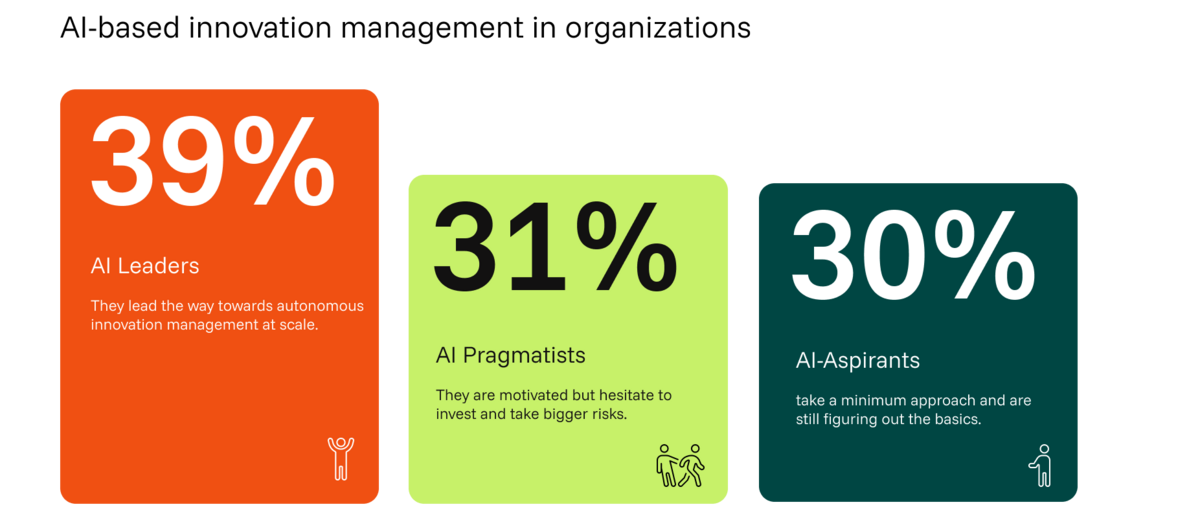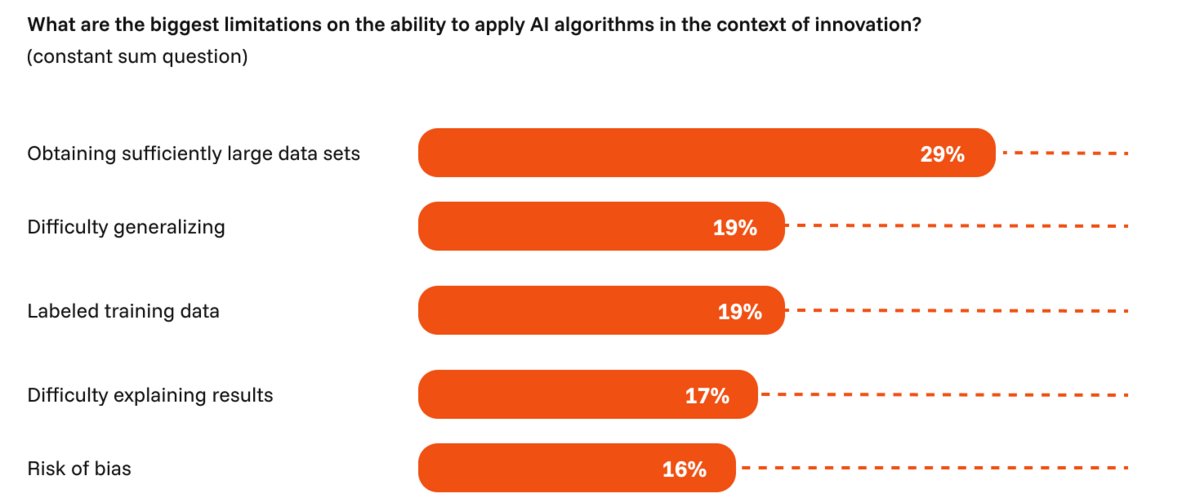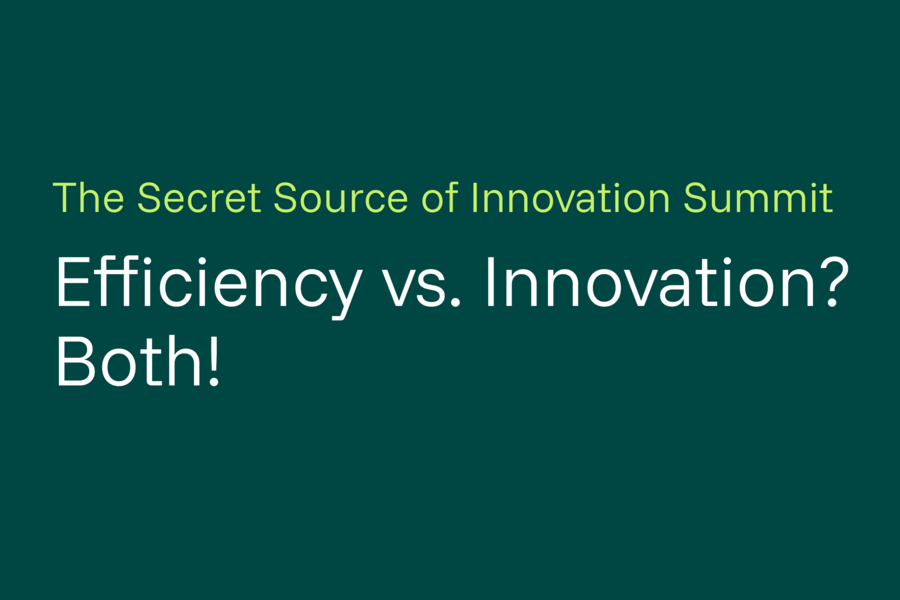Autonomous innovation
AI can greatly enhance innovation management, providing efficiencies and new capabilities. However, many companies face hurdles in successful implementation. To unlock AI's potential, businesses must overcome integration challenges and foster innovation through a thoughtful approach to technology, strategy, and execution.

How AI is implemented in innovation management
Artificial intelligence has enormous potential and an immense range of applications in innovation management. Nevertheless, many companies still find it difficult to implement AI-based innovation management.
Our latest study of 162 AI-savvy innovation managers shows that while a large majority of companies agree on the high potential of AI-based innovation management and expect an overall improvement in innovation outcomes, most companies are unable to overcome the challenges and obstacles associated with AI-based innovation management, such as lack of technical expertise, lack of infrastructure, low trust, or an AI-averse mindset. Consequently, many companies fail to apply AI-based innovation management. But not all of them!
Innovate together
This project was realized by the Qvest subsidiary HYVE, our leading foresight & innovation company. To find out more about our co-creation capabilities, visit www.hyve.net
About AI Leader, AI Pragmatists, AI Aspirants – Our study sheds light on all of them
In our study, we explore how organizations may prepare for and transform into AI-based innovation management. Our findings reveal clear differences in the preferences of how organizations use and implement AI-based innovation management. Three main types of companies can be identified, varying not only in their intended AI use, but also in their strategy, organizational structure, and approach to skills development:

PROF. DR. JOHANN FÜLLER | PROFESSOR FOR ENTREPRENEURSHIP & INNOVATION AT THE UNIVERSITY OF INNSBRUCK
Our study in 7 theses
1. Applying AI is considered primarily helpful for analytical and market-related innovation tasks, but a lack of experience and understanding prevents companies from extensively embracing AI.
2. Applying AI for innovation management is expected to improve innovation performance by more than 50%, but companies struggle to find appropriate approaches for realizing the perceived potential.
3. The main challenges companies face when implementing AI are the access to sufficiently large enough datasets on the data level and the lack of technical expertise on the organizational level.

4. Organizations follow different goals and approaches when it comes to implementing AI for innovation management.
5. Three different types of AI implementers can be found: 1) AI Leaders, 2) AI Pragmatists, 3) AI Aspirants. The identified groups significantly differ according to their chosen strategy, organizational setup, and capability-building approach.
6. Company characteristics such as size, expertise, and perceived potential relate to certain AI implementation practices.
7. Depending on the respective pre-conditions and ambitions, AI Aspirants, AI Pragmatists, and AI Leaders pursue deliberate strategies to further advance in the autonomous innovation game.
The study results
Our study reveals the status quo of AI for innovation management and how it may impact the future of innovation management practice.
Fill out the form and click "Submit." You will then receive a link via email to download the whitepaper. Please note that email delivery may take a few minutes.

































































